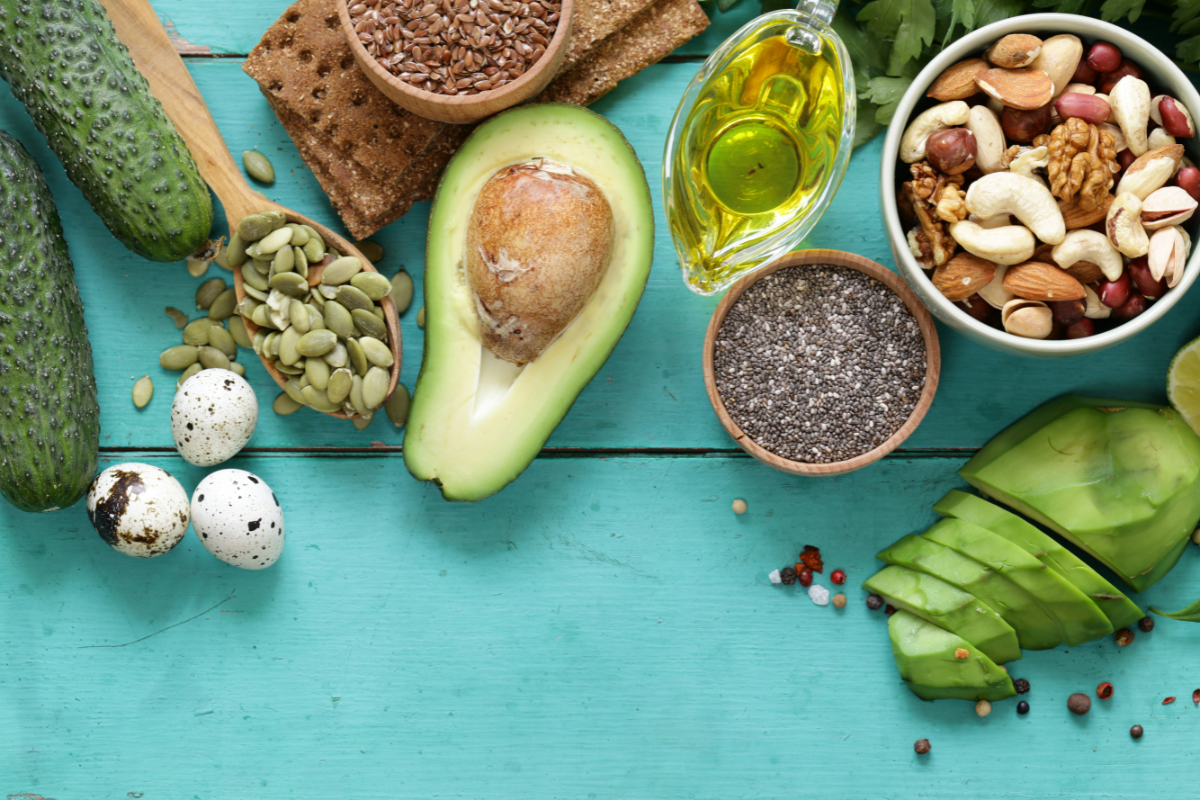The menopause is a natural stage in every woman’s life, marked by significant hormonal changes. Although it is a period of transition, it can be managed effectively with the right diet. This guide aims to provide comprehensive dietary advice to help alleviate menopausal symptoms and maintain good overall health.
The menopause is a phase in a woman’s life when the production of sex hormones, such as oestrogen and progesterone, gradually declines, leading to the end of menstruation. This hormonal transition can cause a variety of symptoms, including hot flushes, night sweats and mood swings.
How do I know if I’m menopausal?
The menopause generally occurs between the ages of 45 and 55, but can vary from one woman to another. It is officially confirmed after 12 consecutive months without menstruation. The hormonal changes associated with the menopause can affect bone density, metabolism and cardiovascular health.
The importance of diet during the menopause
A balanced diet plays a crucial role in managing menopausal symptoms and preventing chronic disease. Good nutrition can help maintain bone density, manage weight and reduce the risk of heart disease.
| Nutrient | Role | Sources |
|---|---|---|
| Calcium and vitamin D | Calcium is vital for healthy bones, and vitamin D helps with its absorption. Calcium requirements increase after the menopause because of the increased risk of osteoporosis. | Calcium: Milk and dairy products, green leafy vegetables, almonds, fish with edible bones.
Vitamin D: Sun exposure, oily fish, fortified milk, food supplements. |
| Phytoestrogens | Phytoestrogens are plant compounds that mimic oestrogen in the body. They can help reduce menopausal symptoms. | Flaxseed, soya and soya products, legumes, sesame seeds. |
| Omega-3 fatty acids | Omega-3s have anti-inflammatory properties and can improve cardiovascular and cognitive health. | Oily fish (salmon, mackerel, sardines), chia seeds, walnuts, linseed oil. |
| Fibre | Fibre plays a crucial role in digestive and metabolic health. It helps to regulate blood sugar levels, control appetite and maintain a healthy intestinal microbiome, thereby contributing to hormonal balance. | Sources of fibre: Vegetables (broccoli, Brussels sprouts, carrots), fruit (apples, berries), wholegrain cereals (brown rice, oats, quinoa), legumes (lentils, chickpeas), nuts and seeds (chia seeds, flax seeds). |
What kind of diet should I adopt during the menopause?
Adopting a balanced diet during the menopause is crucial to managing symptoms and maintaining good health. Here are some essential food groups to include in your diet:
| Food group | Description | Examples |
|---|---|---|
| Fruit and vegetables | Rich in vitamins, minerals and fibre. They play a key role in maintaining a healthy weight and improving digestion. Colourful vegetables provide polyphenols and dietary fibre, supporting a healthy intestinal microbiome and hormonal balance. | Broccoli, Brussels sprouts, kale, apples, berries, oranges, avocados |
| Wholegrain cereals | Energy sources rich in soluble fibre, helping to stabilise blood glucose levels, reducing the risk of blood sugar spikes. Contributes to a feeling of satiety, helping to control appetite and maintain a healthy weight. | Brown rice, oats, quinoa |
| Lean proteins | Essential for tissue repair and maintaining muscle mass, particularly important during the menopause when loss of muscle mass can be a problem. Offers benefits for digestive and muscular health. | Chicken, turkey, tofu, lentils, chickpeas, black beans |
| Dairy products | Essential sources of calcium and vitamin D, crucial for maintaining bone density and preventing osteoporosis. Fermented products such as kefir offer probiotic benefits, supporting a healthy intestinal microbiome. | Milk, yoghurt, cheese, kefir |
What foods should I avoid during the menopause?
During the menopause, it’s crucial to pay particular attention to which foods to avoid in order to minimise symptoms and maintain good overall health. Processed foods, for example, are often high in added sugars, salt and saturated fats. These components can not only contribute to weight gain, but also increase the risk of developing chronic diseases such as cardiovascular disease and diabetes.
Caffeine and alcohol should also be avoided or consumed in moderation. These substances can aggravate hot flushes and sleep disorders, two common and uncomfortable symptoms of the menopause. Caffeine, in particular, can increase anxiety and disrupt sleep cycles, while alcohol can interfere with body temperature regulation, exacerbating hot flushes.
Finally, sweets and foods containing added sugars should be limited. Not only do they contribute to weight gain, but they can also cause rapid fluctuations in blood sugar levels, which can worsen menopausal symptoms and increase the risk of chronic diseases. To maintain a balanced diet and reduce menopausal symptoms, it is therefore advisable to avoid these types of food as much as possible.
Practical advice for balancing hormones
- Plan your meals: Include a variety of foods to ensure a complete nutritional intake.
- Stay hydrated: Drink plenty of water throughout the day.
- Get regular exercise: Helps maintain muscle mass and improve bone density.
- Watch your portions: Avoid excess to maintain a healthy weight.
- Think about food supplements to support your dietary changes





